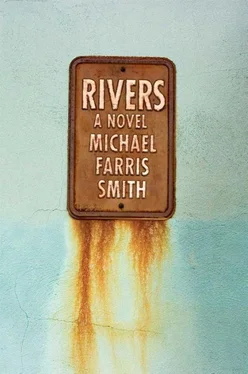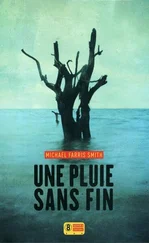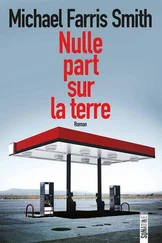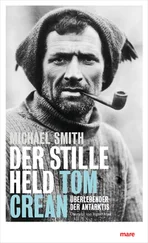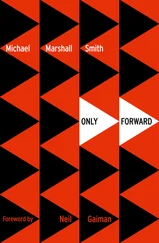His mind raced and the storm raged on and lying on his stomach, with his arms folded and his face buried in his arms, he fell asleep. And the dreams began. The anarchy came back to him, the hours after the Line became official. The fires that were set to the looted stores and the crumbling buildings and the empty homes. The coastline going up in flames, bands of those left behind setting fire to whatever would burn and then moving on to something else that would burn. The casinos the most direct targets, the symbol of frustration among the coast dwellers who had watched the casinos always be the first to go back up while everyone and everything else around them suffered. Some of the casinos had been lifted by the roaring tide and turned on their sides and pushed inland. Some of them had sunk. Some of them stood like Roman remains, only structural shells of a more prosperous time. Those that would burn, were burned, like all else, patches of fires burning red in the night, across Gulfport and Biloxi and other small, deserted communities.
He saw the fires in his dreams, heard the gas lines catching and exploding and the glass shattering like pistol shots, and he saw the fire setters celebrating like a ritualistic people who believed that the carnage was somehow serving this way of life. He saw the smoke gathering and forming a far-reaching cloud that sat in the sky and waited for the next hurricane and he saw the next hurricane and how it sucked the smoke into its swirl and gave the already gray sky a deeper, more menacing gray, like some slick, sharp stone. He saw the fires and heard the screams and the explosions and in his dreams there was destruction and swirling around him in his sleep there was destruction and he slept without being startled, desensitized to the orchestra of demolition.
Cohen woke with a jerk and the pain shot through his shoulder. He forgot where he was and he raised up and banged his head on the pew and he lay down again, holding his shoulder with his face twisting in pain. When the pain eased, he rolled out from under the pew and got up and sat on it. The wet chill all over him and the wind and rain bruising the land. He hugged himself, shivered. He closed his eyes and tried to think of somewhere warm. Somewhere safe.
He was standing at the back door of the house watching them. They sat together on a blanket out in the field. Elisa’s brown hair in a low ponytail, a sundress baring her shoulders, sunglasses on. The little girl with the same brown hair, wavy and long, sitting next to her mother. The light drawn to them like angels. They played together with something, he couldn’t see what. They talked with one another but he couldn’t hear their voices, some kind of static drowning them out. He called to them but neither responded and he began walking out to them and the sunshine grew brighter and brighter until the landscape flashed white and blinded him and when he looked again they were gone, and the blanket was gone, but the static was there and he pulled at his ears and rubbed at his eyes as the static filled his brain and he cried out and then he opened his eyes and they disappeared in the dark church.
The wind shoved something through the busted roof and it landed with a crash and he slid off the pew back onto the floor. He lay with his eyes closed and arms crossed in half an inch of water, and somewhere through it all he heard the sound of the voice, calling, Shoot him. Shoot him now.
IT WAS LIKE RIDING IN the bed of a truck. Some rocking, some pushing. Enough uncertainty to be wary of letting go. Mariposa sat on a mattress on the floor of the trailer, her arms beside her, hands flat on the floor, the winds jerking at the trailer that was strapped to the earth by an erratic arrangement of ropes wrapped tightly to spikes driven deep into the ground. The ropes were tightest across the middle of the trailer top and the ceiling gave some with the strain and the ropes crisscrossed the trailer like the web of some deranged spider. The small trailer rocked in the big winds and she had sat there many nights before and she had yet to take flight but that didn’t keep away the fear. Three lit candles stood in three empty beer bottles in the corner, knocking together but standing up, and the candlelight danced with the rhythm of the storm.
She was wrapped in a sleeping bag and she wore only panties and a flannel shirt. Her clothes lay spread at the foot of the mattress, soaked from the day’s work. Her thick, long hair still had not dried and it lay across her shoulders, down across her breasts, and touched her folded legs. She swayed back and forth a little, mumbling to herself, trying to talk herself through the storm, trying not to think about tomorrow, wondering what had happened to the man they left behind. She looked over at the overcoat Aggie had given her to wear and she thought that the lawn-mower cord was in the pocket and she imagined the flakes of skin from the man’s neck that must be crusted in the rope.
She was a Creole girl with Creole parents and grandparents and she had grown up on the east edge of the French Quarter in a shotgun house with wood floors and windows painted shut. Anywhere from six to ten other people lived in the house, depending on how many cousins or uncles or sisters settled in at a particular time. Her family owned a convenience store on the corner of Ursuline and Dauphine that sold groceries on the right side of the store and liquor and wine on the left. There was a room at the back of the store that was for the voodoo. Incense and spirit soaps and books on the occult and herbs of the darker arts. And in another room, farther back into the soul of the building, was where her grandmother sat in a cloud of cigarette smoke at a rectangular wooden table and read tarot cards or palms or whatever anybody wanted reading.
The room was no bigger than a closet, no windows, and a single naked blue bulb hung from the ceiling. Three of the walls were draped in dark-colored tapestries, reds and purples and crimsons reaching from ceiling to floor. The fourth wall was made of brick and a strip of wire hung across its width and clothespins held black-and-white photographs to the wire. Most of the photographs were yellowed, some were curled on the edges. Some of them thirty, forty, even fifty years old. The photographs were of family members dead and gone who served as Grandmother’s sources, and as she delivered the promises of good fortune or of ill fate, she would call to the photographs by name, trail her hand back over her shoulder as if to reach out and hold them while they spoke, and it was not unusual for a repeat customer who had been delivered a stroke of predicted good luck to ask for a particular family member by name, believing that the stoic face in the weathered photograph was a guardian angel in a drab disguise.
Her grandmother was named Mariposa and the girl had been named after her. She had the same features as her grandmother and mother and aunts. Thick, wavy black hair, deep-set brown eyes, and skin like fine, rich cocoa. As a child she was always close to her grandmother, sitting in the corner as her grandmother called to the spirits to give her the prophecy, walking with her around the streets of the Quarter as she told tales of the old buildings and the ghosts who haunted them. Sitting in Jackson Square feeding the birds and listening to her grandmother speak of Christ and the saints one minute, of the spirits of the dead slaves and dead pirates the next. They would walk along the river and the old Mariposa would tell the young Mariposa of the lovers who had been separated at the river, one leaving on the steamboat, the other standing on the pier, torn apart by things they could not control, star-crossed romantic tales that built up the heart and then tore it down. There was not a street that didn’t have a story. Not an alley without a ghost. Not a burning candle without a spirit hovering close by. A carnival of imagination.
Читать дальше
